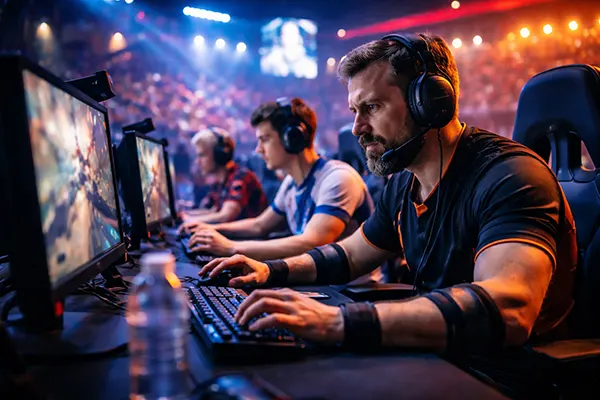Debut Mistakes of Casters at Major Esports Events: ESL One and The International Cases

Commentating at the world’s most prestigious esports tournaments is a high-pressure job. The ESL One and The International events serve as global stages where every word, pause, and analysis from a caster is under the scrutiny of millions. For newcomers to this role, the transition to such major broadcasts often reveals critical missteps. This article dives deep into specific debut errors seen at ESL One and TI, analysing what went wrong and how lessons were learned.
Lack of Adaptation to Live Dynamics
One of the most common problems faced by debuting casters is struggling with the fast-paced nature of live broadcasts. Unlike online content or smaller events, ESL One and The International operate on tight schedules, unexpected delays, and live technical shifts. Casters often underestimate how much multitasking is required — from receiving producer cues to adjusting commentary flow in real time.
A notable case involved a first-time caster at ESL One Cologne, who failed to react to an abrupt match pause due to a technical issue. Instead of filling the silence with insightful banter or game background, the caster appeared visibly confused, prompting awkward dead air. This affected the broadcast’s quality and audience engagement.
Such situations are avoidable with rehearsals and mentorship. Established casters often recommend shadowing veterans and practising “fill talk” to handle lulls smoothly and maintain the show’s energy regardless of unexpected breaks.
Overpreparation and Script Reliance
While preparation is essential, relying too heavily on notes can backfire in dynamic live matches. At The International 10, a new analyst joined the desk with detailed pre-written breakdowns, but when a draft phase took an unexpected turn, they stuck to irrelevant notes rather than adjusting commentary to the real situation.
This not only disrupted the chemistry with fellow casters but also confused the viewers, who expected real-time strategic insights. The overdependence on pre-written material is a common debut mistake and highlights the need to balance preparation with adaptability.
The best way forward is building strong foundational knowledge of game mechanics and team tendencies. This enables the caster to pivot quickly without clinging to rigid outlines, enhancing both accuracy and credibility on air.
Nervous Delivery and Microphone Discipline
Live audiences and massive viewership numbers can shake the confidence of even well-spoken individuals. For debuting casters, nerves often translate into vocal issues: inconsistent volume, mumbling, or speaking over others. A well-documented example occurred during ESL One New York, where a rookie’s jittery delivery led to several microphone clipping incidents, requiring intervention from sound engineers mid-broadcast.
This issue affects not just audio quality but also team synergy. When one caster speaks too softly or too loudly, it disrupts the rhythm and flow between co-hosts. Viewers may struggle to follow commentary or become distracted by technical inconsistencies.
Training with professional audio equipment and simulating stage conditions in advance can significantly reduce this problem. Furthermore, working with experienced sound technicians during rehearsals builds familiarity and trust, ensuring smoother debuts under pressure.
Interrupting and Talking Over Co-Casters
Inexperienced commentators may not yet have the sense of timing required for smooth handoffs and conversational flow. During The International 11, a first-time colour caster repeatedly interrupted their play-by-play partner, causing overlap and confusion in the commentary.
This mistake typically stems from excitement or a lack of coordination rather than malice. However, it can cause frustration on the desk and reduce the clarity of the broadcast for viewers. Effective casting is as much about listening as it is about speaking.
To mitigate this, rehearsals should include timed exchanges and cueing systems. Pre-match discussions about who covers what segments help set expectations and boundaries, especially for newcomers still developing their timing instincts.

Failing to Engage the Global Audience
ESL One and The International events attract diverse viewers from around the world. A debut caster’s job isn’t just to inform but also to entertain and connect with international audiences. A misstep noted at ESL One Birmingham involved a caster using regional slang and in-jokes that were unfamiliar to most viewers, leading to confusion and a lack of engagement.
Casters who rely too heavily on localised humour or language risk alienating parts of the audience. Moreover, they may come across as unprofessional if jokes fall flat or seem exclusionary. This can damage reputation early in a caster’s career.
It’s critical to keep tone inclusive and content understandable across cultures. Successful casters adapt their references and humour to remain universal, focusing on player stories, strategies, and emotions that resonate across regional divides.
Missing Key Moments in the Game
One of the most noticeable errors is when a caster fails to highlight critical in-game developments. At The International 9, a debuting duo missed a pivotal Roshan steal because they were recapping a previous play, resulting in a storm of viewer complaints online.
This mistake stems from poor map awareness and a lag in game sense — both of which are essential for real-time casting. When fans rely on the commentary to follow complex fights or objectives, missing key plays damages the integrity of the viewing experience.
Watching replays, practising observation techniques, and working closely with observers can improve awareness. Some casters even train by casting over past matches with focus on predicting key objectives and player movement patterns.




